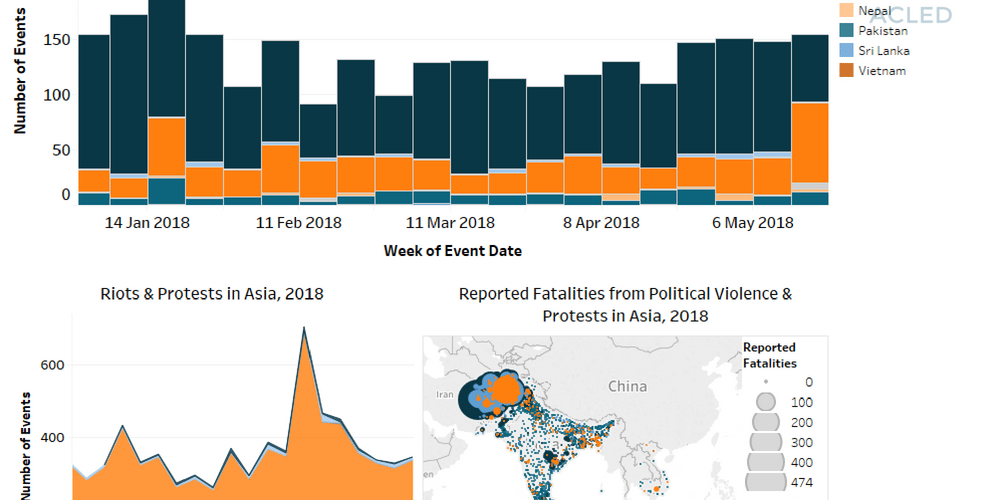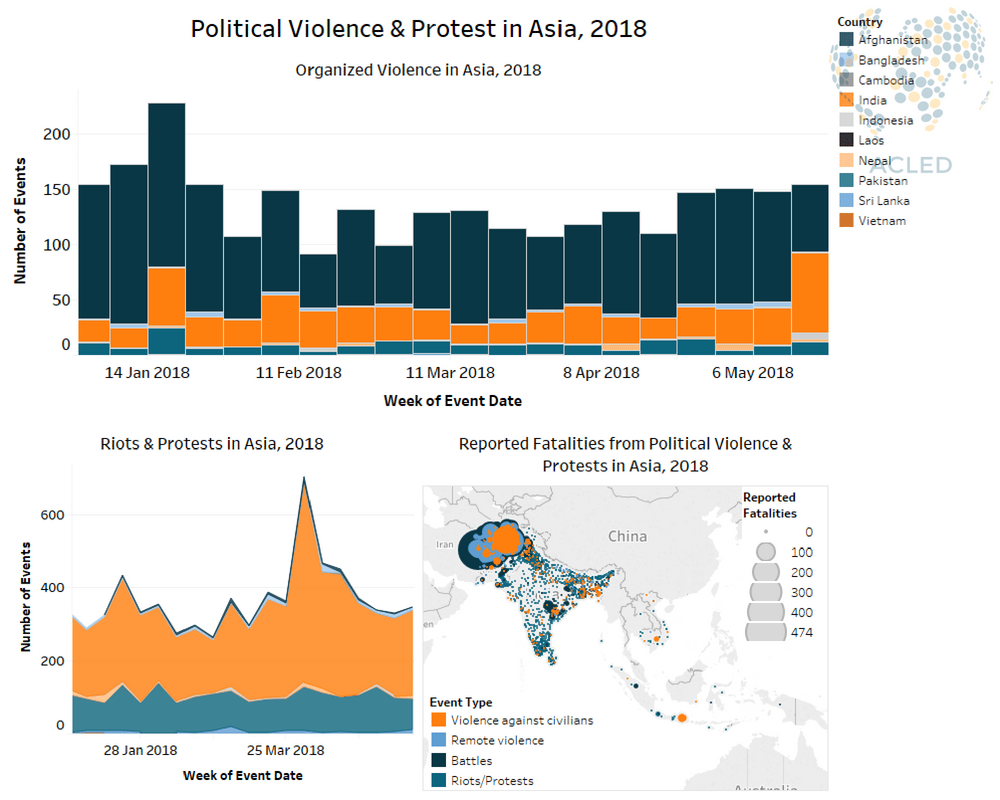Major instances of political violence were reported from several South and Southeast Asian countries, especially in Indonesia, Pakistan, and Afghanistan.
In Indonesia, Islamist groups associated with Jemaah Ansharut Daulah (JAD) carried out a series of bombings and other violent attacks on several Christian churches and a Brimob (Mobile Brigade Corps) police station. These attacks resulted in the killing of 14 people and the death of 13 suicide bombers.
In Pakistan, levels of political violence increased leading to a spike in the number of reported fatalities from the week prior (where only one fatality was reported) to 19 reported fatalities last week. Most notably, the Balochistan leader of Lashkar-e-Jabbar (LeJ), Salman Badeni, was killed by Pakistani military forces during an intelligence-based raid in the suburbs of Quetta.
Taliban militants in Afghanistan continue to capture territory during their spring offensive, gaining control of areas in Ghor, Badghis, Faryab, and Ghazni provinces during attacks between May 11 and 15. In addition, Taliban forces launched a massive assault on Farah city, which resulted in initial territorial gains on May 15, though there was a withdrawal the day after when the Taliban was faced with joint Afghan/US counter action. The Taliban also lost control of the recently gained (on May 8) district of Tala wa Barfak in Baghlan province to Afghan government forces on May 18.
In India, the 2018 panchayat (village government) elections in the state of West Bengal – which began on May 14 – led to a surge in political violence and riots in the state, with 31 reported fatalities last week. A flare up in cross-border firing and militant violence was also reported from the state of Jammu and Kashmir, in the same week that the Indian government declared a unilateral ceasefire for the duration of Ramadan.
Protest levels remained static in most South and Southeast Asian countries last week with a declining number of events reported in Pakistan (-10%) and a slight increase in the number of events reported in India (13%).
(Data on Philippines, Thailand and Myanmar have not yet been released; trends are hence not explored above.)







